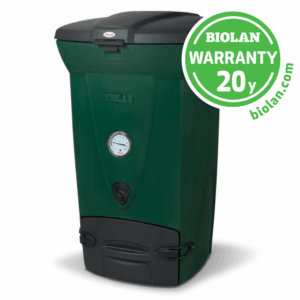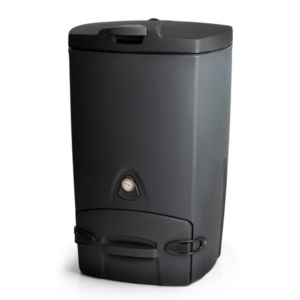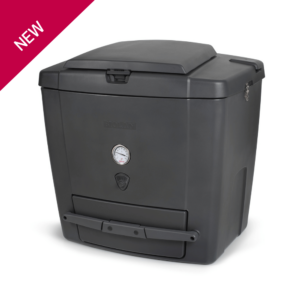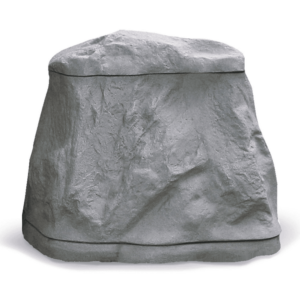WHAT CAN AND CAN’T BE COMPOSTED?

Composting Guide for Beginners
Starting to compost at home is a smart and sustainable step — but it often comes with questions.
Can I compost cooked food? What about meat or dairy? Does it matter what kind of composter I use?
In this guide, we’ll walk you through what goes in, what stays out.
What You Can Compost
Most organic materials can be composted — but not all composters are built to handle the same types of waste. The key is to match the material to the right kind of composter.
Kitchen Waste: Needs a Closed, Tightly Built Composter
Food scraps break down well in compost, but they require a composter that’s closed, tightly built, and pest-proof. This kind of composter can handle:
- Vegetable and fruit scraps
- Coffee grounds and tea bags (plastic-free)
- Bread, pasta, and rice
- Dairy products
- Meat and fish waste
- Leftover cooked food
- Crushed eggshells
- Small amounts of kitchen paper and napkins
- Houseplants and cut flowers
💡 Tip: A thermocomposter, like the Biolan Thermo Composter 220 Eco or Biolan Thermo Biowaste Composter, speeds up the composting process — helping you turn waste into garden-ready compost even faster.
Just remember to always add Bulking material along with food waste. It keeps the compost airy and helps balance moisture, which is essential for smooth decomposition.
For Garden Waste: Use a Garden Composter
Garden composters are typically larger and ideal for handling yard and garden materials. You can safely add:
- Grass clippings
- Leaves
- Weeds (as long as they’re not invasive or full of seeds)
- Prunings and soft plant waste
- Small branches (ideally shredded)
🚫 Avoid adding any food waste to a garden composter if it’s not tightly built — large openings can let in pests and cause unwanted smells.
💡 Tip: For best results, compost infected plant parts in an insulated thermocomposter. Chop them up, cover well, and mix into the compost to speed up decomposition and reduce risks.
Avoid composting:
- Clubroot-infected soil or roots
- Root vegetables damaged by pests
- Soft-rotted onions or potatoes
- Couch grass roots and other perennial weeds
These are better disposed of through municipal waste.
What Not to Compost
Some materials won’t break down properly, and others can interfere with the composting process or even pose health risks. These are best left out:
- Non-degradable waste: plastic, glass, rubber, leather
- Toxic substances: wood preservatives, disinfectants, poisons, paints, solvents, gasoline, etc.
- Vacuum cleaner bags, which may contain, for example, glass shards
- Cigarette butts
- Glossy colored advertising paper, which may contain heavy metals
- Large amounts of paper at once
- Large amounts of ash or lime, which make the compost too alkaline
- Biodegradable bags decompose poorly in home composters. If you use biodegradable bags, empty the contents into the composter and place the bag in separately.
💡 Tip: If something doesn’t come from a natural, untreated source — or you’re unsure whether it will decompose — it’s better to keep it out of your composter.
Composting is a simple habit that makes a big difference — for your garden and the planet.





























